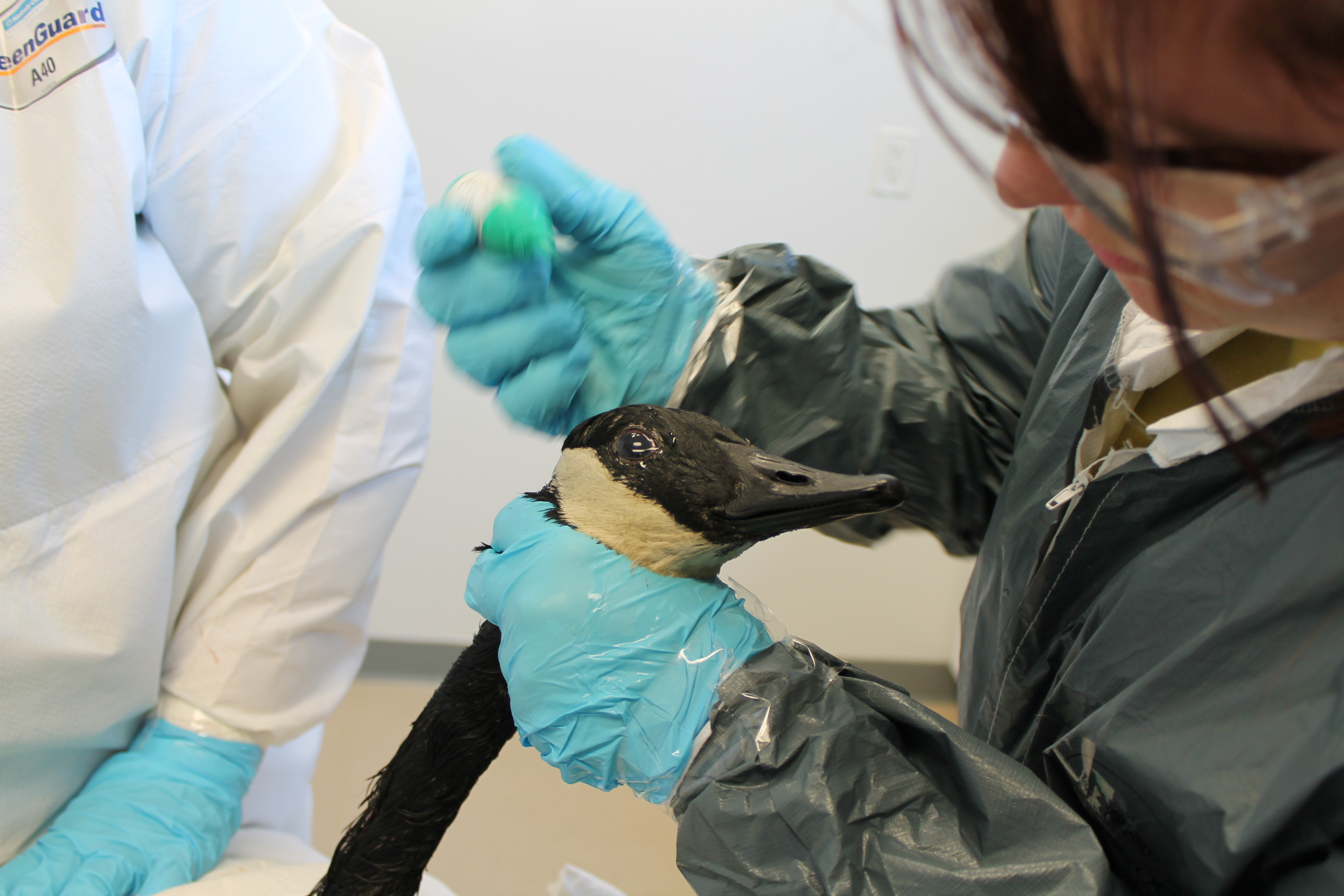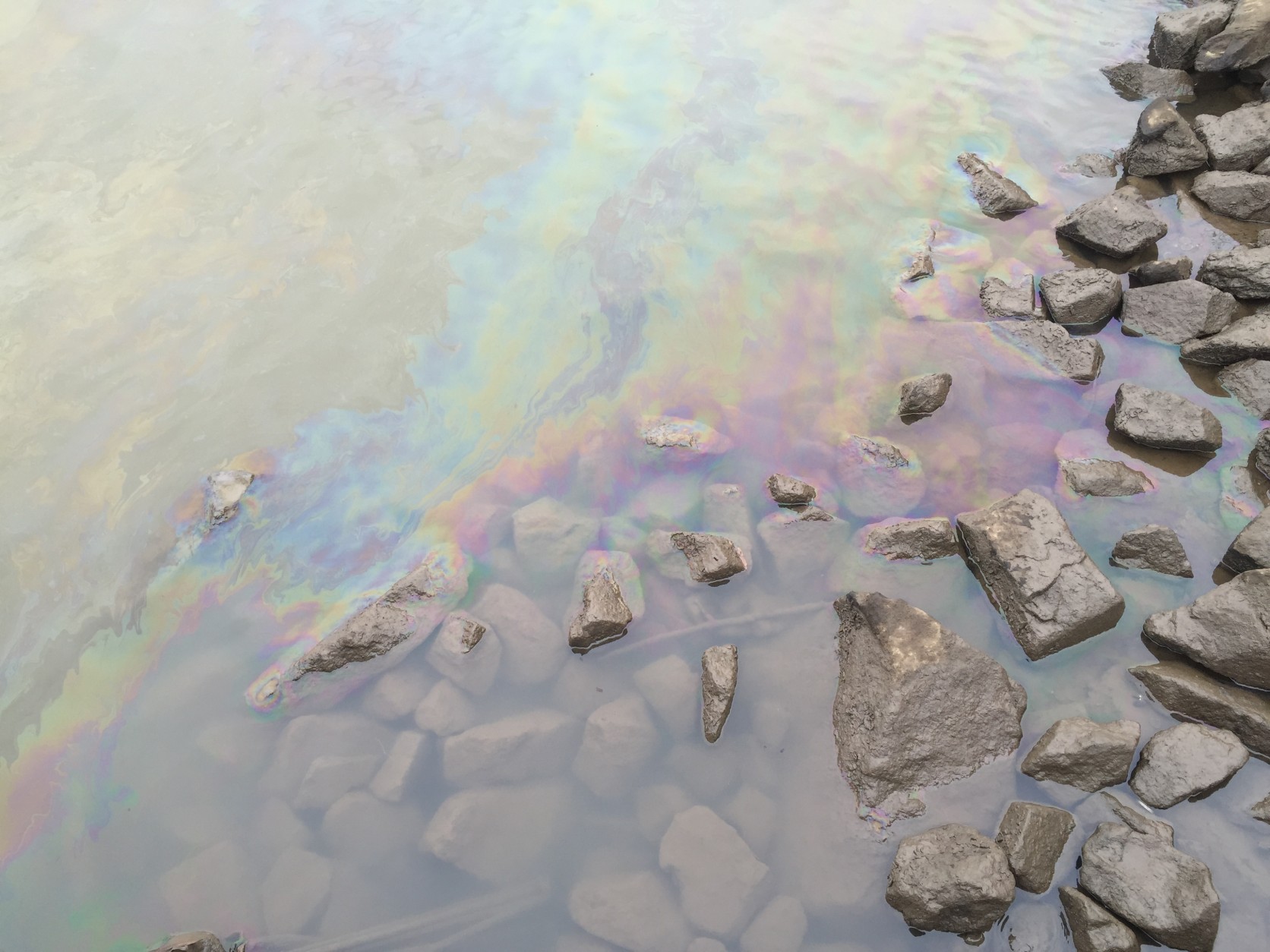
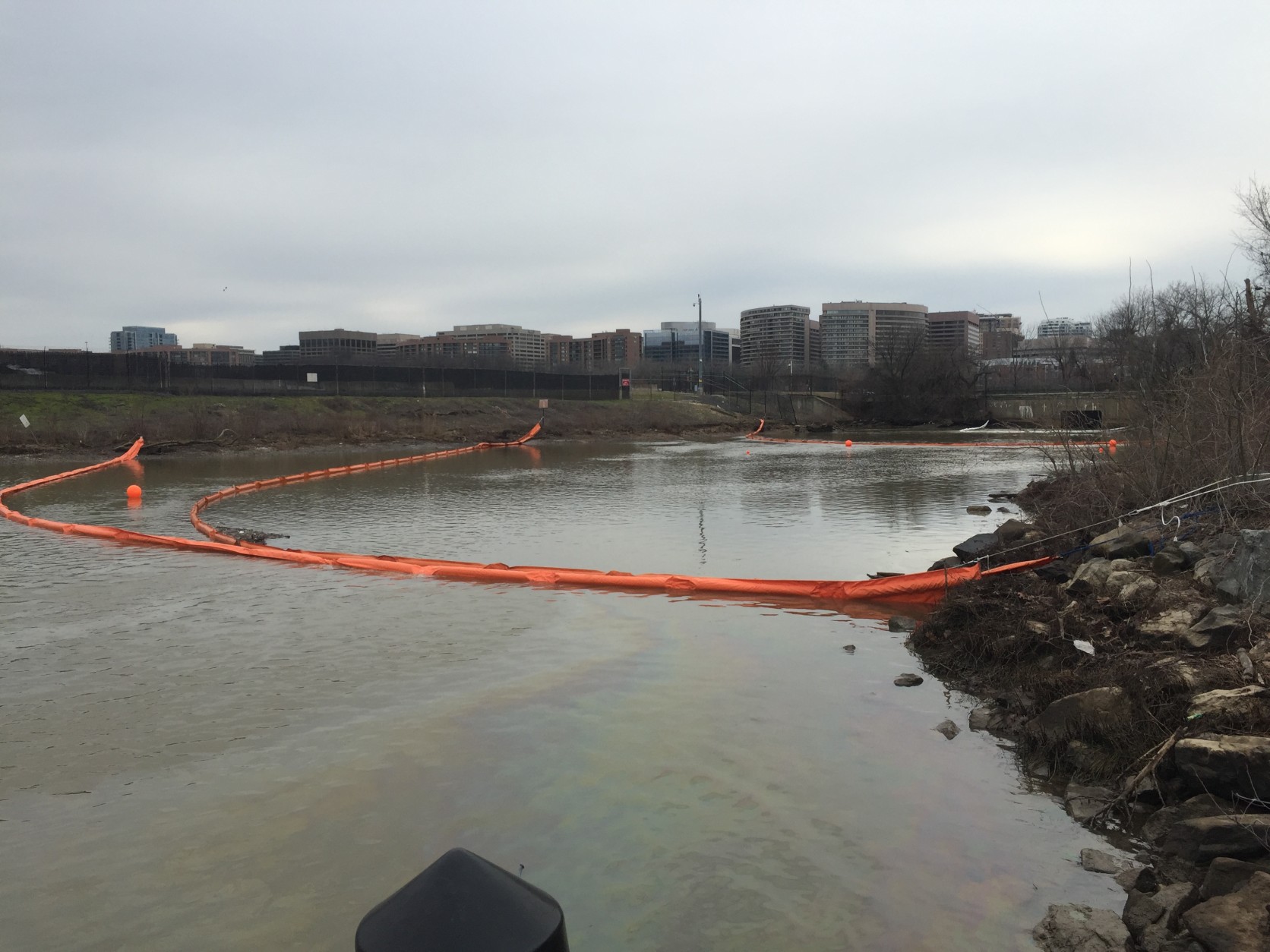
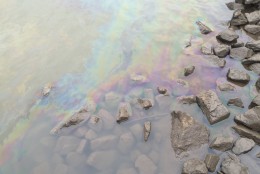
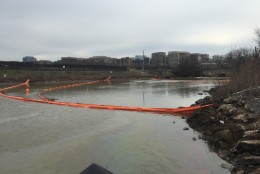
ARLINGTON, Va. — Orange floating barriers in the Potomac River near Gravelly Point Park in Arlington are stopping a rainbow-colored film from making its way farther downstream.
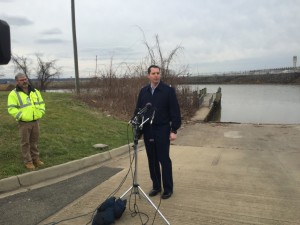
Initial testing has determined the substance is fuel oil, which rules out the source being car or jet fuel. Michael Keane, incident commander with the U.S. Coast Guard, said one possibility is home heating oil that made its way into the river from a weather-beaten and leaking oil tank.
Keane said clean-up crews have been unable to remove any of the oil from the water, but it is evaporating on its own.
“We’ve been trying to contain to minimize the environmental impact,” Keane said.
For much of Monday, crews have been examining the stormwater drains near the park — where it is believed the oil made its way into the river — trying to determine the source. One thing working against investigators is the age and condition of the system, which has seen many added drains over the years.
“It’s an extremely complicated outfall system,” said Keane.
Last week, local officials and the U.S. Coast Guard first heard reports of an oil sheen on the river stretching from Reagan National Airport south to the Woodrow Wilson Bridge.
The spill has had a negative impact on area wildlife. Twenty-nine Canadian geese and a Mallard duck have been rescued and are being cleaned of oil by the Tri-State Bird Rescue in Delaware. One goose died from its injuries caused by the oil.
Keane said the Coast Guard hasn’t been able to rule out a mineral oil spill reported by Dominion Virginia in Crystal City on Jan. 24 because mineral oil falls in fuel oil spectrum. The Coast Guard said the utility company is cooperating and has provided samples and those will be compared to samples from the river later this week.
Dominion said in a statement that there is no evidence to indicate the sheen is from the substation spill and they are working closely with federal and local officials.
The Coast Guard expects more test results on the oil to come in later this week, but they may not find those who are responsible.
“There is a chance that no, we might not find out who the actual responsible party is,” Keane said.


